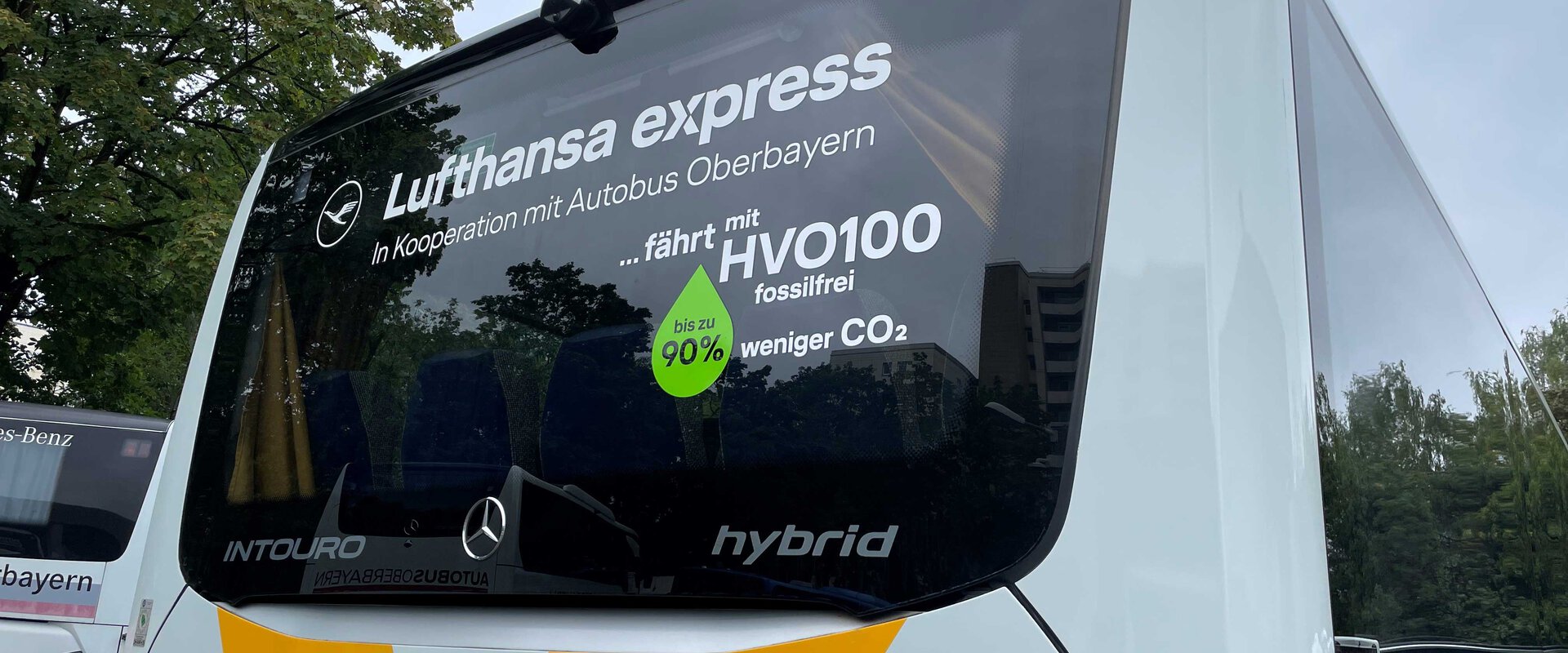
In August 2024, we switched our bus fleet to the environmentally friendly, synthetic diesel fuel HVO100 on a trial basis. HVO100 stands for Hydrotreated Vegetable Oil and is produced from renewable raw materials such as vegetable oils, animal fats and used cooking oils. A special production process in which the raw materials are treated with hydrogen produces a fuel that is similar to fossil diesel but is significantly more environmentally friendly.
Environmentally friendly alternative
HVO100 offers numerous ecological advantages. CO₂ emissions can be reduced by up to 90 per cent, while harmful emissions such as particulates, nitrogen oxides and carbon monoxide are also significantly reduced. Thanks to its high cetane number, the biofuel ignites more easily and burns more efficiently, which increases engine performance and reduces fuel consumption.
Focus on climate protection
The use of HVO100 is an important step towards reducing CO₂ emissions and protecting the climate. The use of the new fuel in Lufthansa Express buses can save more than one tonne of CO₂ per year. In return, we accept higher fuel costs, as HVO100 is around 15 cents per litre more expensive than conventional diesel. For us, this is a worthwhile investment in an even more environmentally friendly fleet.



